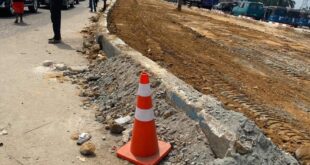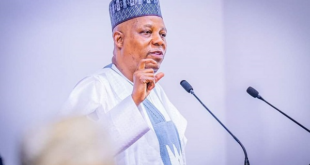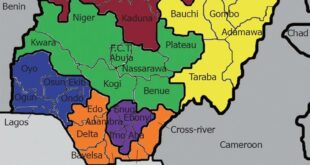The Federal Government’s recent introduction of a student loan scheme has been criticised by the Academic Staff Union of Universities (ASUU), which argues that it will not benefit poor and needy students due to the stringent requirements.
Dr. Mwolwus Jurbe, the ASUU Chairperson of the University of Jos Chapter, expressed this view in an interview with the News Agency of Nigeria (NAN) on Saturday in Jos. He insisted that the loan scheme was not meant for the children of the less privileged, who should be the primary beneficiaries.
NAN reports that President Bola Tinubu enacted the Access to Higher Education Act, 2023, also known as the Students Loan Act, in June.
The law aims to provide interest-free education loans for Nigerians seeking tertiary education.
Some of the conditions are that students who want to apply for the interest-free loan must have secured admission into a public Nigerian university, polytechnic, College of Education (COE), or Technical and Vocational Education and Training (TVET) institution.
The applicant’s income or family income should not exceed N500,000 per year, and he or she must have at least two civil servants as guarantors.
These guarantors should be either on Level 12 or above in the civil service, a lawyer with at least 10 years of post-call experience, a judicial officer, or a Justice of Peace.
Students or their parents who have previously defaulted on loans or have been convicted of exam malpractice, felony, or drug offences would not qualify for the loan.
The loan repayment would start two years after the completion of the graduate’s National Youth Service Corps programme, and the money would be deducted directly from the beneficiary’s salary at a rate of 10 percent by the employer.
Self-employed beneficiaries would pay 10 percent of their total monthly profit to the designated student loan account to be specified by the bank.
However, Jurbe said that ASUU, a union that advocates for equity and justice for all, wants Nigerians to have equal opportunities to access education, regardless of their social status.
“One of the reasons for our last strike was the revitalization of the university system, but we faced backlash from Nigerians.
“We believe that the government can fund education because federal and state governments spend huge amounts to send students abroad for studies.
“If this huge amount is invested in our education system, it will become the envy of many countries, and foreign students will come here to study too.
“So, this loan will shift the burden of funding education to parents, and it simply means that children of poor Nigerians can’t go to school,” he said.
According to Jurbe, any country that wants to make meaningful progress must also fund its education sector.
The chairperson, who also lamented the high rate of unemployment in the country, said that most students who would access the loan might not be able to repay it within the stipulated time.
“Granting bursary awards to Nigerian students is better than offering loans. This is because students may not be able to repay the loan due to the lack of employment opportunities in the country.
“The truth is that many unemployed graduates who obtain such loans while in higher institutions would become indebted to the government and unable to repay in time.
“Such policies work in western countries like the United States of America, simply because there are job opportunities waiting for students even before they graduate from their various schools.
“But that is not the case in Nigeria, and we will not support the commercialization of education because it is a social good, and no one should be denied that right,” the ASUU leader said.
Meanwhile, some stakeholders in Taraba, on their part, said that although the scheme was a commendable idea, it needed to be reviewed to make the conditions flexible for the benefit of Nigerians.
Subscribe to the Advocate News letter and receive news updates daily in your inbox.
 Advocate.ng Latest news update on politics, entertainment, sport and more
Advocate.ng Latest news update on politics, entertainment, sport and more




